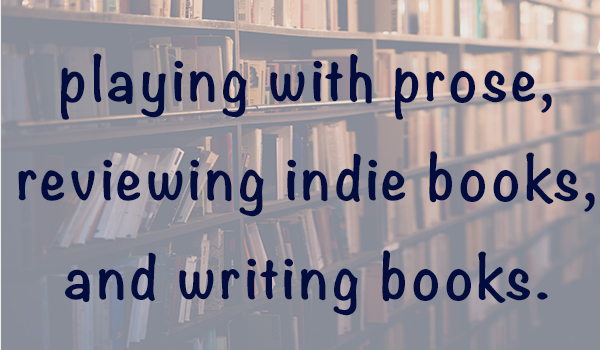#3
Today we have a sacrifice from Christopher Keene, a chapter from a future, currently nameless book. He is a fantasy/science-fiction author with a book series involving a rather lethal species of trees.
Paragraph 1, sentence 1&2.
I strolled through my suburban neighborhood, its streets deserted with Saturday night curfew in full effect. Although anxious to get home, rushing would only attract further attention.
Let us start with the phrase ‘in full effect,’ which is unnecessary from a comprehension standpoint. ‘Deserted’ conveys the same information—that there’s no one on the streets except for our rebellious bad boy here. But, it may improve the rhythm, rounding out the sentence so it attains a comfortable length in our heads. This is entirely subjective, and I vacillate constantly between readings, but ultimately am inclined to delete as the disruption to rhythm is only potential and, if real, minor.
This brings us to the second sentence which (in only 50% hyperbole) fills me with despair. I like the way this sentence reads, but can’t quite ignore the fact it is grammatically incorrect. The reason for my despair? The solution murders this sentence. The easiest solution is to add an ‘I was’ to the beginning, or an “I knew” after the comma, which is mildly more palatable. This, again, comes to author preference, whether they are a strict adherent to grammar’s tyranny or a vile secessionist. An argument can be made to leave this sentence as is. Yes, it is grammatically incorrect, but it is understandable on every level, feels controlled and (just as importantly) has one of the two cheat codes: it’s first person, which operates under some of the liberties granted to dialogue in that character’s don’t have to be grammatically correct so long as they’re understandable.
I have one last comment for this paragraph, centered around the words ‘further’ which conveys a very particular element that seems at odds with the narrative so far, and ‘get’. (How awesome is this opening that you can say that after TWO sentences, see how much information the author conveyed just through word choice and narrative structure WITHOUT having to take you out of the story? Anyway, back to further…) Here, ‘further’ says—more than there already was— indicating that this character already has attention focused on him while being out after curfew. This is either more world building, or a misplaced adjective, and it is hard to distinguish which at this point, and needs mentioning in case it is the second. Concerning ‘get,’ I would consider swapping it to ‘return’ as I think that reads a little better. (You will find that certain words just never read well, such as ‘commence,’ which is almost impossible to use eloquently in writing or speech without sounding pompous and forced.)
Edits applied.
I strolled through my suburban neighborhood, its streets deserted with Saturday night curfew. Although anxious to return home, rushing would only attract further attention.
Paragraph 2, sentence 1-3
From tomorrow onward, the curfew would no longer impair me. Just one of the many perks of working for the Terriam conglomerate. Even from here, I could see the Terriam Tower, a monument to their domination over the city.
I have two issues with the first sentence, the first being that our main character doesn’t seem particularly impaired by the curfew currently. It’s a minor detail, and undoubtedly nit-picky, but it does matter. The immediate explanation is that he just signed the papers tonight, but even in that case, the sentence is factually wrong because he is no longer impaired by the curfew TONIGHT, not tomorrow.
My second qualm is that it does not flow right from the first paragraph. I can’t quite tell if it’s on a word, rhythm, or thought level, but something just does not work. It’s not pleasing to start this second paragraph. Unfortunately I can’t see a real solution to it, I think mostly because I can’t pinpoint what’s causing the discord.
On another note, this sentence can be restructure to “Tomorrow would liberate me from the curfew” which cuts several words and is streamlined without sacrificing word potency, but too short on its own. It would need padding or to be married to an ensuing sentence such as… “Tomorrow would liberate me from the curfew, just one of many perks from working for the Terriam conglomerate.” (‘conglomerate’ may need to be capped.)
You’ll notice creative liberties with the second sentence, all of these were taken to remove the ‘the’ from ‘one of the many’ and to ensure a pleasing rhythm. In run-down: I deleted the ‘the,’ and swapped the ‘of working’ to ‘for working’ to avoid the echoing ‘of.’ One could also exchange the ‘for’ to ‘under’ potentially, to remove another glue word.
Thus we begin the third sentence. There is some rhythm discord here from the second to third sentence, which I attribute to the shift in focus. The first two sentence (four if you count the first paragraph) speak of the curfew, then here we abruptly shift gears to our main character’s view and a distant tower. A segue would help, but might also alter the sentence against the author’s intent. For instance, the easiest segue is “whose tower…” but that necessitates cutting the tower’s name and, because of that, it’s importance. We can restore the importance by adding ‘central’ or ‘regional’ before tower. After that, we would still have to devise an action that simultaneously conveys its oppressive prominence without infringing on sentence’s second half. But, the discord is relatively minor, and more so if you preserve the paragraph’s original structure. So, it’s up to the author to decide which path.
This third sentence also suffers from a common trope/parasite in writing, the need to focus a piece of description from a character view, “I could see.” Even without this, we would automatically attribute anything described here as something the character sees. It is not a misstep in of itself, but often unnecessary.
The final two changes I would make to this sentence are converting ‘domination’ to ‘dominion’ (purely for rhythm and sound) and ‘the city’ to ‘this city,’ which is more personal, locating the character (and thus readers) directly into its purview, making its oppression ever so slightly more personal.
Edits applied
Tomorrow would liberate me from the curfew, just one of many perks from working for the Terriam conglomerate. Even from here, I could see the Terriam Tower, a monument to their dominion over this city.
Paragraph 3, sentence 1-3
Footsteps echoed on the pavement, and a woman in a white jacket appeared on the other side of the road. Auburn-haired and olive-skinned, her beauty was striking, and despite the hour, she did not appear to be hurrying. Her glance met mine, but I swiftly broke eye contact, not wanting to be identified as another delinquent out so late.
I like this first sentence, it adds sound into the descriptive mix, and flows well with distinctive words. The final phrase struggles, though, “on the other side of the road” is clunky and bogged down with glue words, sapping her appearance and the prose of momentum. The easiest solution is to replace it with “across the road,” which seems to work from both a comprehensibility and rhythm standpoint, but may add an element of ambiguity.
For the second sentence, we have a brief, concise physical description (the second-to-best king,) and a touch of relevant description (the best kind.) The phrase is “she did not appear to be hurrying” which is clunky, but, because of the author’s world and narrative building, carries a prominent threat without him having to lift a finger otherwise. (A threat our main character exudes as well.) We just have to clean it up somehow. The core problem(s) are “did not” and “to be,” which are weak, cluttering, and unpleasing. The first change that occurred to me was “she evinced no haste,” though “displayed no haste/hurry/concern” might work better. I think that change works, but it might be too stilted. A better ending word would be ‘urgency,’ which is a more accurate description of what I think the author wants to convey. ‘Hurry/haste’ can derive from a number of sources, ‘urgency’ (given the context) indicates an element of fear, so the lack of urgency indicates an absence of fear, augmenting this character’s danger signs. I also think, it helps my edit “…and despite the hour, displayed no urgency.” I think that works, but author’s choice. (Mutters menacingly, “Dang authors always getting in the way of my world conquest…)
Now, the final sentence, with just a few cuts. I want to delete ‘eye’ because it read’s better, and I think I can get away with it, so I will. We can also delete (ish) ‘another’ and ‘out so late.’ ‘Another’ needs to be replaced with ‘a,’ and the reason is that I don’t know if ‘another’ is saying anything that ‘a’ doesn’t. You might say it conveys the reality of other delinquents, but that information is self-evident, stripping ‘another’ of purpose and rendering it into an iteration. So unless it’s saying something else, which then needs to be expounded upon, swap to ‘a’ which is not an iteration. We’re deleting ‘out so late’ because it’s an unnecessary qualifier, most people will make that connection automatically as it is the only crime we’ve seen our main character commit.
With edits applied.
Footsteps echoed on the pavement, and a woman in a white jacket appeared across the road. Auburn-haired and olive-skinned, her beauty was striking, and despite the hour, she displayed no urgency. Her glance met mine, but I swiftly broke contact, not wanting to be identified as a delinquent.
Complete edited segment.
I strolled through my suburban neighborhood, its streets deserted with Saturday night curfew. Although anxious to return home, rushing would only attract further attention.
Tomorrow would liberate me from the curfew, just one of many perks from working for the Terriam conglomerate. Even from here, I could see the Terriam Tower, a monument to their dominion over this city.
Footsteps echoed on the pavement, and a woman in a white jacket appeared on the other side of the road. Auburn-haired and olive-skinned, her beauty was striking, and despite the hour, she did not appear to be hurrying. Her glance met mine, but I swiftly broke eye contact, not wanting to be identified as another delinquent out so late.
That’s all for today. If you like our content, please consider subscribing for updates. If you liked this glimpse at Christopher’s work, here is his
https://www.goodreads.com/author/show/15561371.Christopher_Keene.

